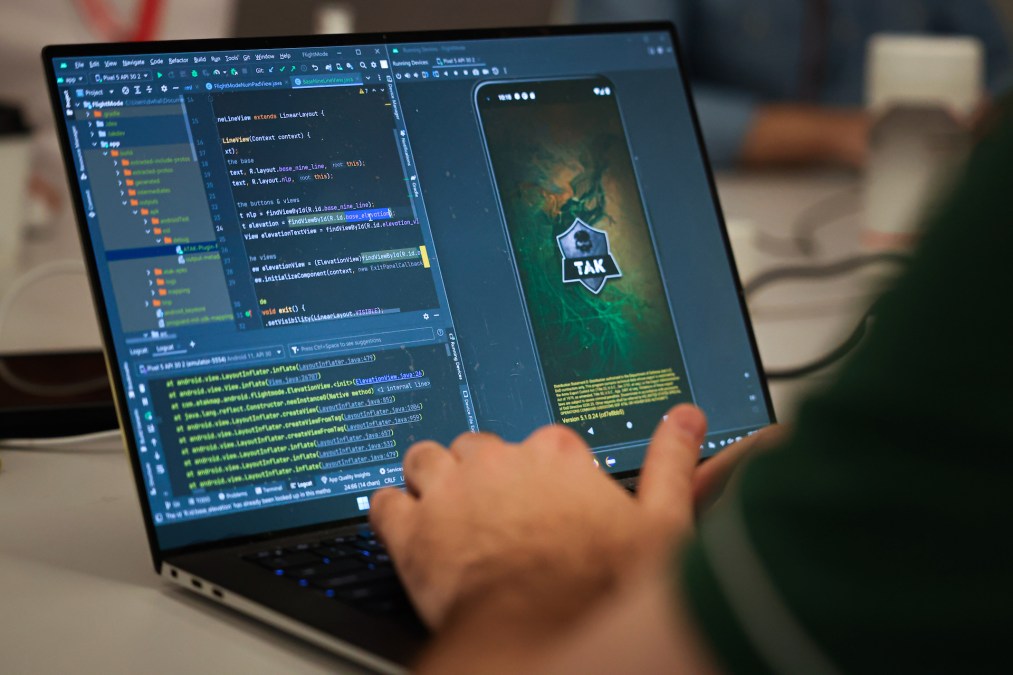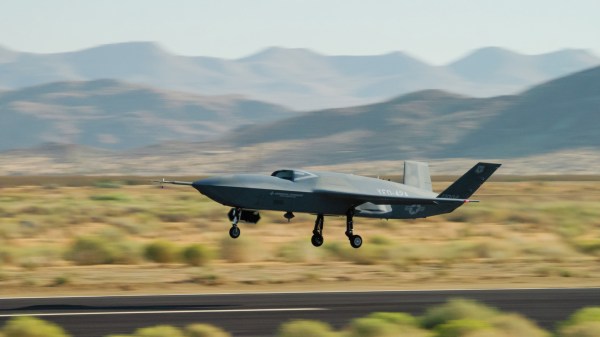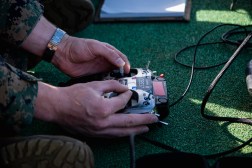Marine Corps could expand software factory, create new MOS

The Marine Corps is looking at growing its software factory and potentially creating a new military occupational specialty for it, according to an official involved in the program.
The Marine Corps Software Factory was launched in 2023 as a three-year pilot in Austin, Texas. The aim was to demonstrate a scalable software development capability led by servicemembers. Personnel there have been training others and building apps and other tools for different elements of the force.
“Our ultimate goal is to provide commanders with the organic software development capability to rapidly research problems and deliver scalable solutions into the hands of warfighters. After going through our training pipeline, these Marines will return to the [Fleet Marine Force] with the critical skills they need in order to provide this service to their units. And that’s something that they can do in perpetuity, that just would become essentially their new job, a new role in life,” Capt. Brian Atkinson, a full-stack engineer at the factory, said during a presentation Thursday at the Modern Day Marine conference.
There are several different types of jobs at the software factory, including product manager, software engineer, “user interface” Marine, platform engineer and AI engineer, he noted.
About 15 Marines are working there now.
Officials are pondering what comes next and how to move forward once the pilot program ends and the software factory becomes a more permanent organization.
“Right now, we’re going through the DOTMILPF [doctrine, organization, training, materiel, leadership and education, and personnel] working groups to actually figure out what the lifecycle would be, because, unfortunately, it’s not as simple as just … ‘go forth and do great things.’ You have to figure out what the career progression would be, because you’re essentially creating an entirely new MOS,” Atkinson told DefenseScoop, using an acronym to refer to military occupational specialty.
“Without trying to speak out of turn, the general idea is that once we become a real unit, this becomes its own MOS, we would grow in size from the 15 that we’re at now to about 50 or 60 — and that’s again subject to the Marine Corps’ approval. And then from there we would have the potential to either start recruiting people before they even show up to boot camp, get them to sign up to be a software engineer as their actual primary MOS, or we would open it up to the rest of the Marine Corps for [lateral] moves just the way that we’ve done now. Like, I’m an infantry officer who came over here to do this. So we’re not really sure yet, subject to the DOTMILPF working group, but the idea would be that we would be about triple in size. And that would be just one cohort of students per year producing about 20 new Marines … to go out to the fleet,” Atkinson added.
Marine Corps leadership hasn’t signed off on the idea yet, he noted.
“But how we envision it would be, you would have a software engineering MOS. And … kind of the analogy I would draw is, so we have the 03XX occupational field, right? So infantrymen. And there are subsets of the infantry field where you have a rifleman, a mortarman, a machine gunner. Something that we’re toying around with as well is maybe having kind of a similar spin where you have a guy who’s a product manager and he trains to the product manager job. You have a UX guy, you have a software engineer, software development engineer, an AI specialist. There’s a lot of different directions that we’re looking at going,” Atkinson said.
After Marines finish their time at the software factory in Austin, they could undergo a permanent change of station and join a team working with a larger unit, such as a Marine Expeditionary Force.
“Our vision — and something that the Marine Corps is figuring out right now — is you would then PCS to like a software development platoon, if you will, that’s co-located with the MEFs … with the ability to generate capacity for the commanders, co-located with the commanders. And how the commanders use them is totally up to them at that point. But the idea would be you have a different software development unit that is organic to … all the large-scale units within the Marine Corps,” Atkinson explained.
Those experts could solve problems for the units they’re assigned to work with.
“We’ll stick with the MEF, because that’s kind of where we’re thinking right now,” Atkinson told DefenseScoop. There could be “a group of software engineers at the MEF who can answer problems for the MEF specifically. So if the MEF has a unique data requirement that they just need, they need something while they wait for a lasting solution from the acquisitions community, or there is nothing coming [and] they just need something on their own, like a TAK plugin — these would be the guys that would handle that stuff. So it’s not so much that they’re like software techs to help with like IT problems. It would be building solutions for the MEFs specifically.”






